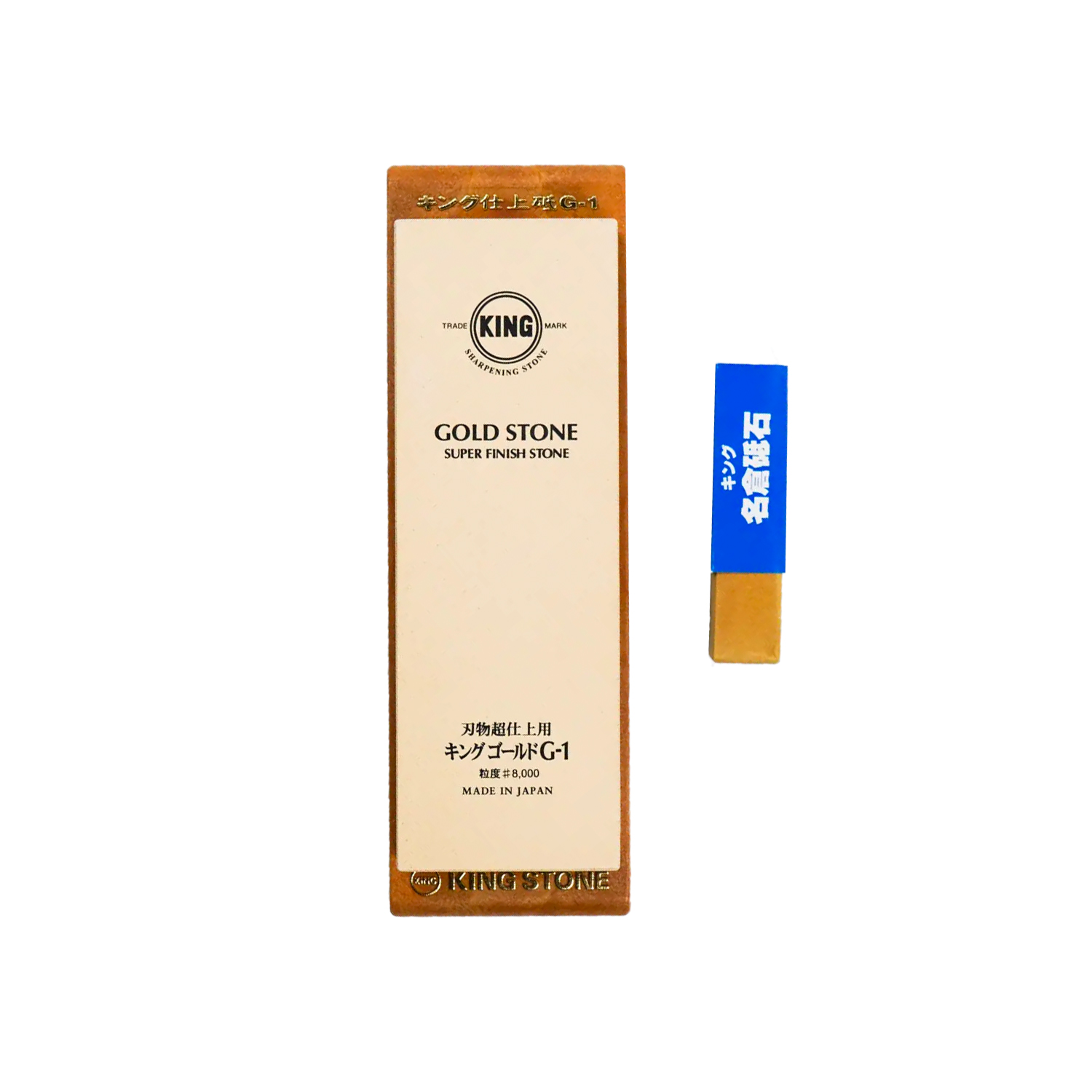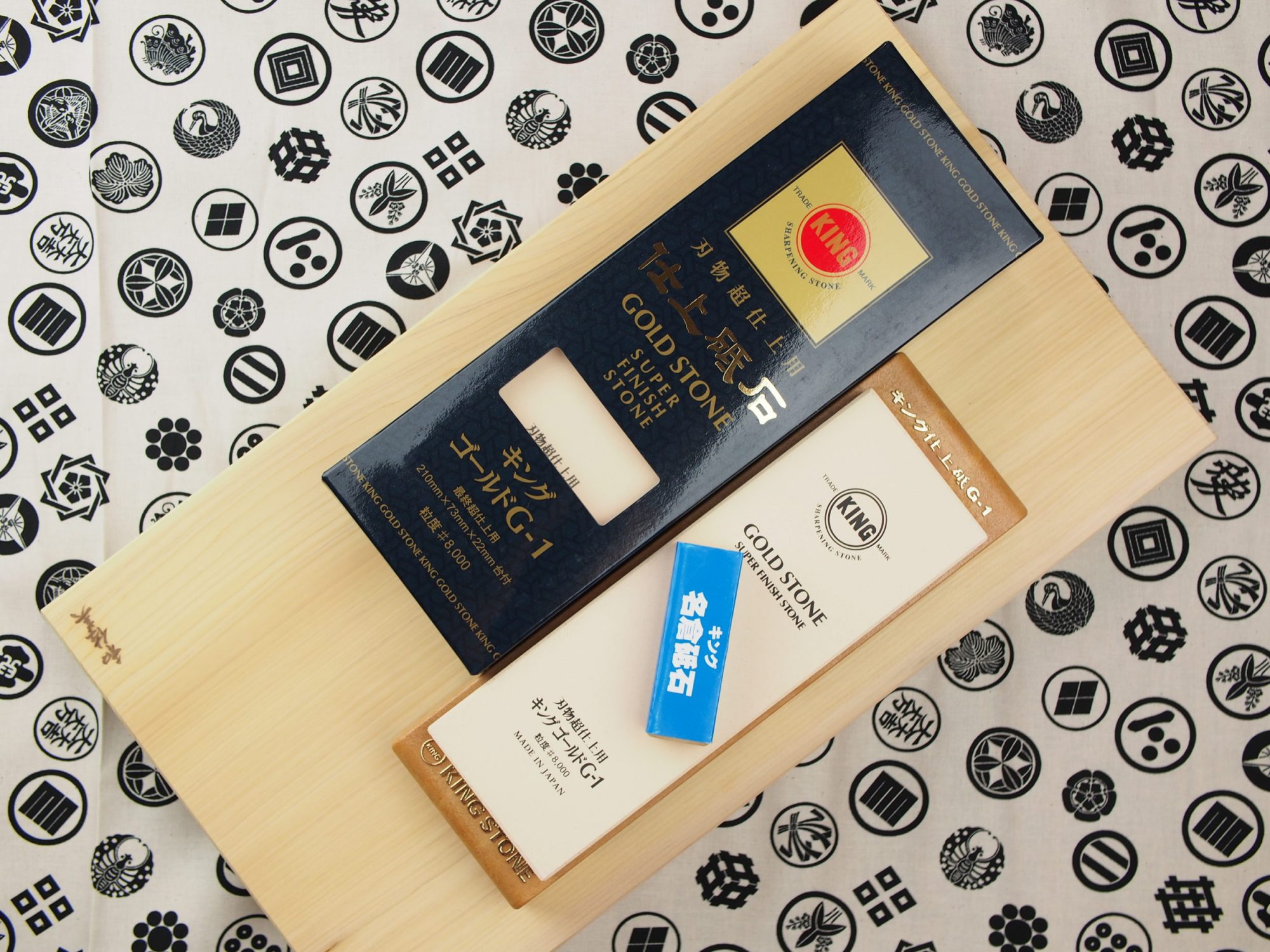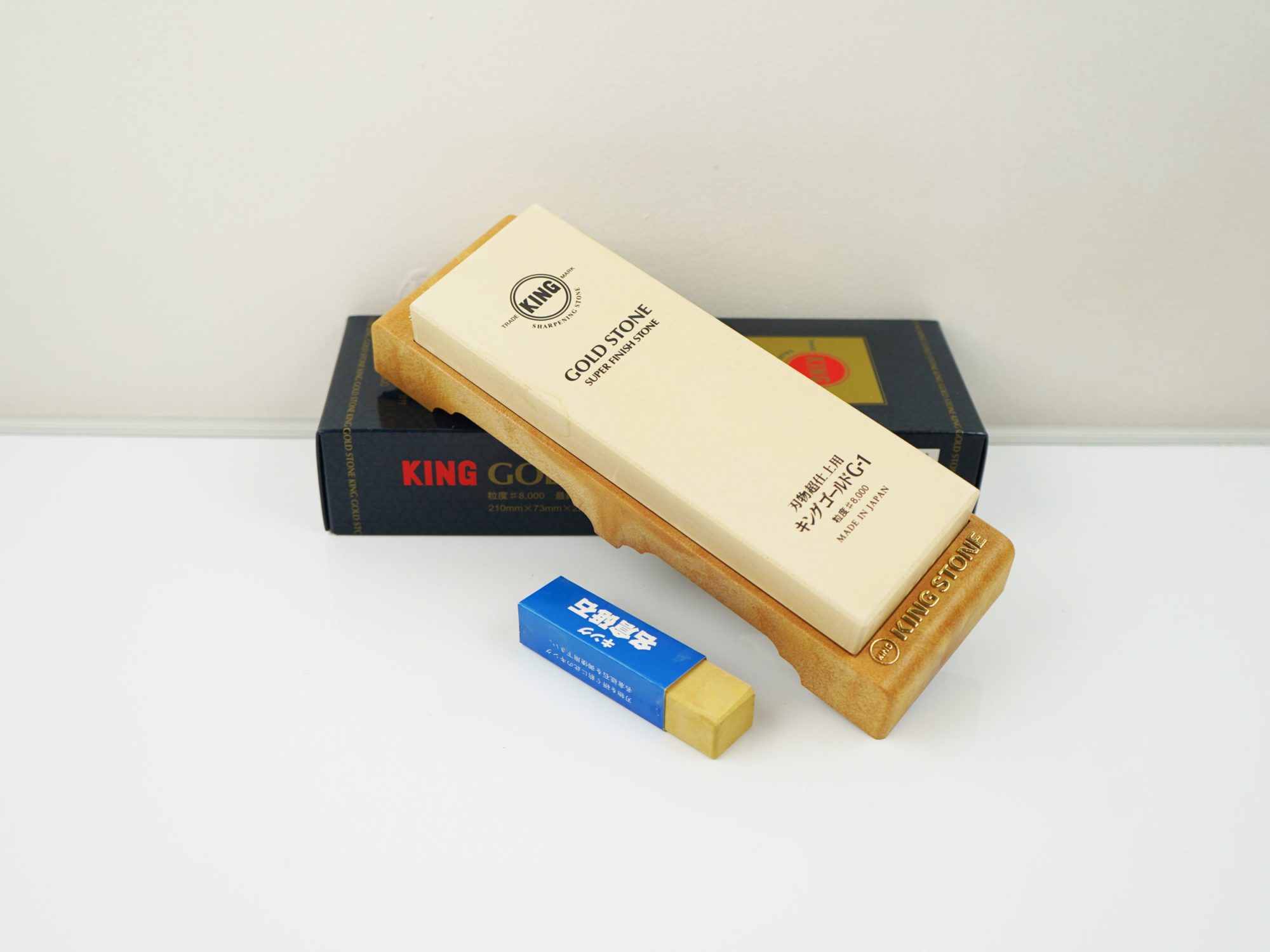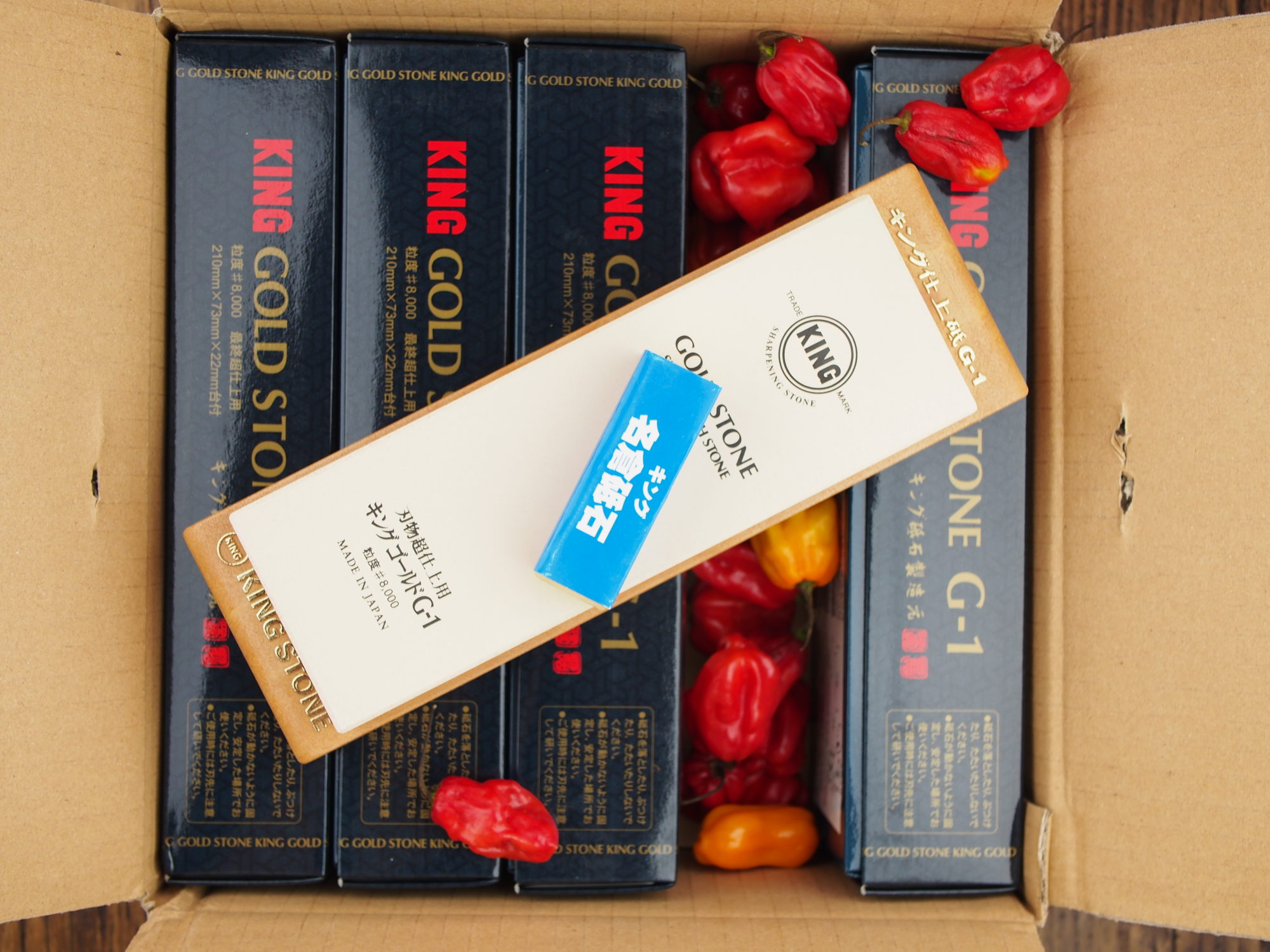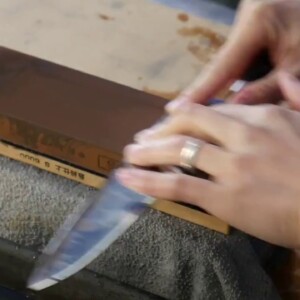Product Description
The King Gold G-1 #800
With its extremely fine grit size, this #8000 grit sharpening stone is perfect for the final polishing of bevels and back sides. It gives a fine, razor-sharp edge to any tool of the knife blade. This original Japanese made whetstone (sharpening stone) releases a constant supply of abrasive particles during sharpening. It ensures that the blade is always presented with fresh cutting edges. This allows the stone to work very quickly. It also prevents it from becoming clogged with the waste metal removed from the edge. For ease of use, this honing stone comes supplied with a stone stand. Dimensions of the stone: 210 x 73 x 22mm.
King stones have earned a worldwide reputation. This is one of the most respectable sharpening stone manufacturer based in Matsunaga, Osaka in Japan. This sharpening stone features an average grit sharpening surface on one side, and a fine grit finishing surface on the flip side. This is the perfect stone combo for new or occasional freehand sharpeners.
Japanese Whetstones
Unlike any other synthetic sharpening stone which consist of a single abrading agent, these Japanese water stones consist of aluminium oxide, carbide and nitride particles fused together. This blend is mixed with a clay-like bonder and baked at high temperatures to form the sharpening stone. The resultant stone is soft but sharpens very quickly. The soft bonding clay allows the abrasive particles to release very easily when the stone is soaked in water. This gives the user a constant supply of fresh cutting surfaces with which to grind, sharpen and hone their tools.
Now favoured by many professionals and sporadic users over the natural stones, when you purchase a synthetic Japanese sharpening stone, you are guaranteed a stone with a uniform grit size that will produce consistent, high-quality results when sharpening and will not vary in quality from stone to stone. This ensures that even those with little exposure to sharpening techniques can easily learn how to optimally sharpen their tools.
Made in Japan
